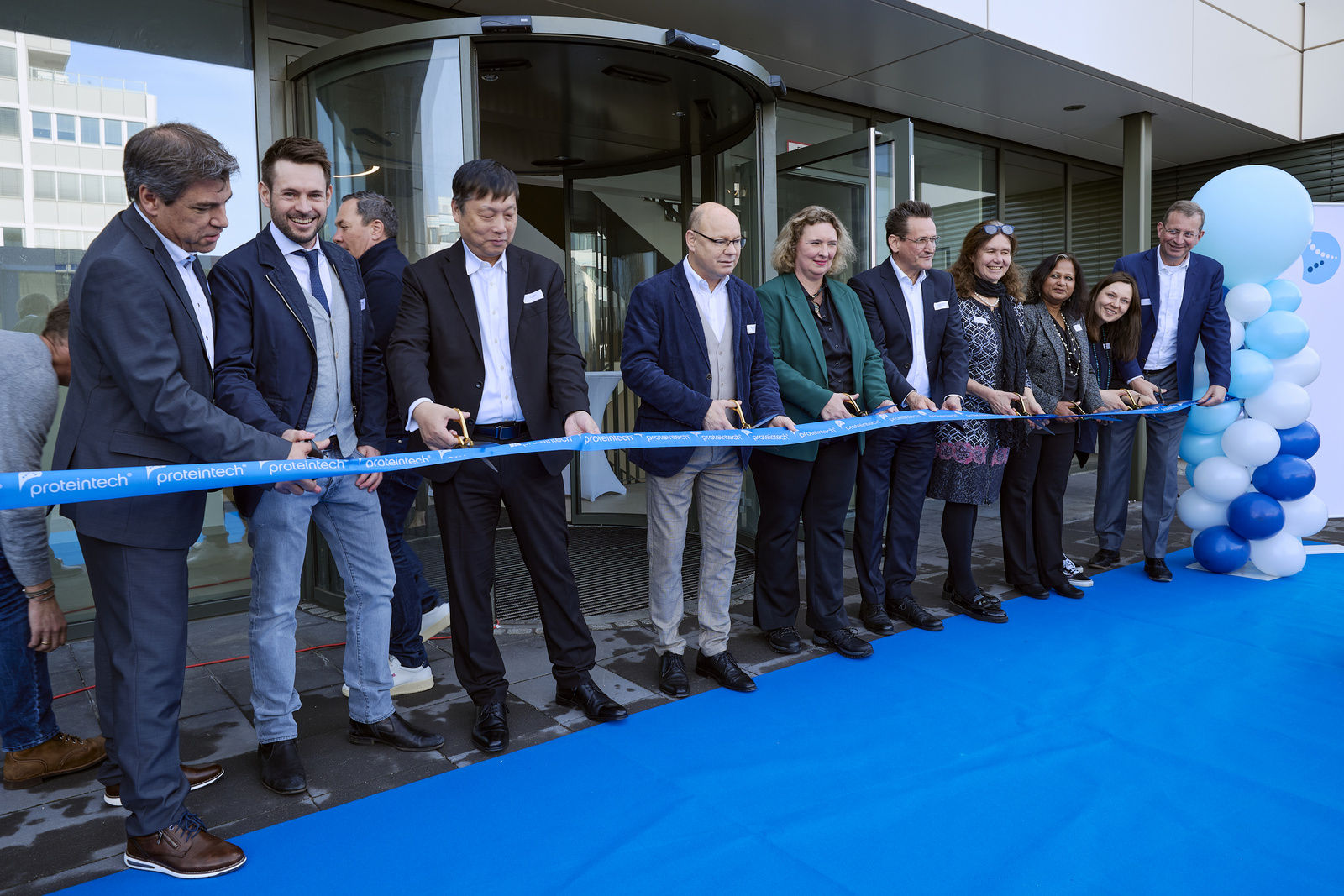- Startseite -
- Digital Bavaria -
- Blog #bytevaria - From Bits to Qbits: how Bavarian companies are embracing Quantum Science and Technology
From Bits to Qbits: how Bavarian companies are embracing Quantum Science and Technology
Quantum science and technology (QST) has the potential to revolutionise many areas of our lives. A vast number of new applications are set to generate new business and growth opportunities. They include the simulation of new materials in the energy and automotive sectors, as well as solving complex optimisation problems in logistics and the financial services industries. QST is set to transform image and signal processing in medical and industrial X-ray computed tomography, and, of course, artificial intelligence and cyber security applications. Whilst the development of quantum computing is progressing rapidly, its use in industrial applications is still in its infancy. Commercialising the technology will take time. Yet now is the right moment for companies to lay the foundations to secure competitive advantages.
Bavaria is fully committed to become a leading global centre in the quantum science and technology, and Bavaria-based companies are already collaborating with research institutions to embrace the potential of QST today.
Here some examples of key projects and current corporate initiatives.
Making quantum computing accessible to mid-sized companies (the Mittelstand)
Many of Bavaria’s large corporates have set up their own QST research departments, but this is largely beyond the scope of mid-sized enterprises which form the backbone of the Bavarian economy. To bridge this gap several initiatives are underway in Bavaria to make the technology accessible to mid-sized companies.
With the PlanQK project (Platform and Ecosystem for Quantum-Assisted Artificial Intelligence), for example, Munich based Quantum Applications and Research Laboratory (QAR-Lab) is working with 19 partners to explore areas of application in German mid-sized companies that lack their own research departments. The project seeks to enable these companies to utilize quantum advantages at an early stage. To facilitate this, PlanQK provides information on available technologies and expert contacts and assists in completing applications via an easily accessible knowledge platform.
Applications of quantum technology include the detection and prediction of anomalies and fraud in the finance sector and the optimisation of maintenance processes in industry and public transport. The fine-tuning of industrial production lines and the networking and control of industrial components are additional uses.
To make quantum computing widely applicable, the foundations for simpler, trustworthy use have to be created – which is precisely the goal of the Bavarian Competence Centre Quantum Security and Data Science BayQS. It researches software issues relevant to quantum computing and develops solutions relating to the following areas:
• Helping industry identify quantum advantages in practice-relevant problems
• Minimising risks to intellectual property stemming from research results obtained when using currently available quantum hardware interfaces
• Simplifying the development of quantum algorithms
Pioneering applications in the field of cybersecurity
Quantum computers have the potential to break many of the commonly used cryptographic systems protecting sensitive information in today's digital world. But quantum computing can also be used to develop more secure encryption systems to resist attacks from both traditional and quantum computers. The promise of developing more secure cryptographic systems makes cybersecurity a primary application for quantum computing – something reflected by many R&D efforts in Bavaria.
The MuQuaNet (Munich Quantum Network) project, for example, brings together the University of the Federal Armed Forces Munich with Munich-based IT security expert Rohde & Schwarz Cybersecurity, among others. They seek to develop, build, and operate a quantum-secure communications network for research and evaluation to be made available to other research institutions and authorities.
An important MuQuNet milestone, namely creating highly secure quantum-resistant networks, has already been reached. The key management system developed by Rohde & Schwarz Cybersecurity has now been successfully tested.
Experts around the world are working on many different aspects of quantum computing-proof cryptography. Aquorypt is one such collaborative effort in Bavaria involving Giesecke+Devrient, Infineon, Siemens, the Fraunhofer Institute for Applied and Integrated Security, and the Technical Universities of Munich and Darmstadt. The project was launched to investigate the applicability and practicalibility of quantum-safe cryptographic methods for embedded systems in industry and in smart card-based security applications.
Giesecke+Devrient is a global security technology provider headquartered in Munich that contributes its expertise in micro embedded systems to the project. The main challenge is to fit new cryptographic processes onto chips without increasing their size. According to experts, this effort compares to “trying to fit an elephant onto a postage stamp“.
For all those who are just getting started, Bay QS (see above) BayQS - Fraunhofer AISEC offers a Cybersecurity Training Lab From first-time users who want to learn about quantum computing to quantum experts, everyone is welcome. Awareness training is offered to managers, and for newcomers to quantum computing, there are basic seminars for becoming familiar with the subject as well as in-depth ones. Individual challenges or specific algorithms can be examined in more detail in the form of in-house workshops.
Getting a quantum head start in financial services
Climate change, supply chain vulnerabilities, and pandemics – the complex mix of risk factors can be described in general but is difficult to quantify. Insurance companies need to predict and understand this mix to be able to hedge against risks and mitigate consequences for the individual.
That’s why a team at MunichRe has been investigating since 2020 how quantum computers can help calculate complex loss and damage probabilities. They use not just historical data but also simulations, since by simulating future scenarios they can calculate potential losses. Unlike conventional computers, which can only calculate various scenarios sequentially (one after another), quantum computers can consider many possible scenarios simultaneously. This can drastically reduce the computing time needed to solve them.
In sum, quantum science and technology can enable insurance companies to better understand risks and offer new products for cases that were previously uninsurable.
MunichRe is one of four Bavarian members of the QUTAC Application Group that includes 13 leading German corporates. QUTAC’s mission includes the development of a highly successful German QC ecosystem plus the joint identification, development, testing and sharing of QC apllications.
Power for semiconductors
One of the QUTAC projects is by Munich-based Infineon. As a semiconductor manufacturer Infineon is extremely dependent on reliable on global supply chains. So demand-capacity matching is highly complex and hitherto classical computer technology cannot even approximate the underlying optimization problem. But Infineon believes quantum computing could be applied to solve at least some of the myriad of complex optimization problems.
This new approach to risk calculation is particularly promising when it comes to new technologies. If cyberattacks, IOT services, and artificial intelligence can be insured, it will encourage companies to deploy cutting-edge technologies earlier while avoiding or hedging against potential risks associated with their adoption.
Making quantum leaps in healthcare
Bavaria is investing heavily in biomedical engineering to develop leading-edge procedures for the diagnosis and treatment of diseases and to compensate for physical disabilities.
A prime example is the Munich Institute of Biomedical Engineering (MIBE) at the Technical University of Munich (TUM). It promotes exchange among researchers and fosters education in biomedical engineering. MIBE combines the findings and approaches of various disciplines such as medicine, the natural sciences, and engineering sciences.
One of their current collaborative projects aims to use quantum technology for cancer imaging. Up to now tracing the metabolism of tumor cells using magnetic resonance imaging (MRI) has not been feasible in routine clinical settings, but an interdisciplinary research team is working to advance the development of a quantum-based hyperpolariser to do just that. It would be deployed in clinical applications. The goal is to significantly improve MRI imaging of metabolic processes, enabling earlier and more accurate assessments of tumors, and improve the selection and monitoring of tumor therapies.
The MIBE team is working with other German universities as well as industry partners such as Siemens and Rapid Biomedical, one of the most respected coil providers to the magnetic resonance research world, based in Lower Franconia.
These are just a few examples of how QST in Bavaria is creating new opportunities for growth.
Curious to learn how it can power your business?
Get an overview of the Bavarian Quantum Science & Technology ecosystem and contact me to connect you with the relevant players for your industry.

How a passion can transform into a successful business

Chicago/Planegg-Martinsried: the US-based Proteintech Group triples the size of its site in Bavaria – with a key focus on research & development, production and logistics


![[Translate to English:] [Translate to English:]](https://ik.imagekit.io/sgliwi1izsz/_processed_/2/d/csm_Invest_In_Bavaria3569_e56a97cefa.jpg?tr=w-1024 1024w, https://ik.imagekit.io/sgliwi1izsz/_processed_/2/d/csm_Invest_In_Bavaria3569_e56a97cefa.jpg?tr=w-1280 1280w, https://ik.imagekit.io/sgliwi1izsz/_processed_/2/d/csm_Invest_In_Bavaria3569_e56a97cefa.jpg?tr=w-1536 1536w, https://ik.imagekit.io/sgliwi1izsz/_processed_/2/d/csm_Invest_In_Bavaria3569_e56a97cefa.jpg?tr=w-1920 1920w)